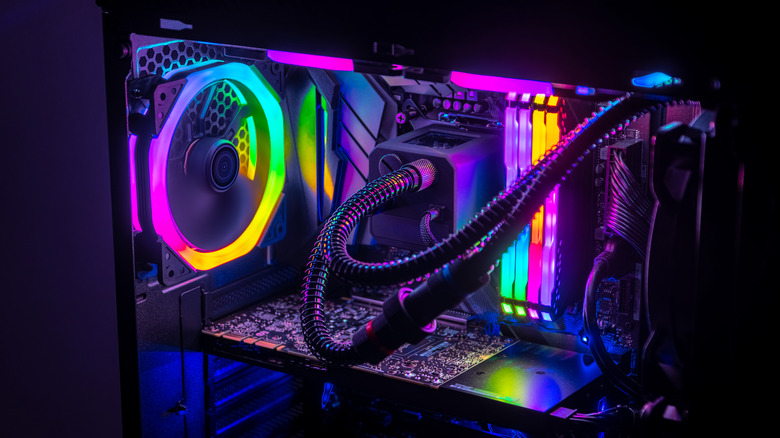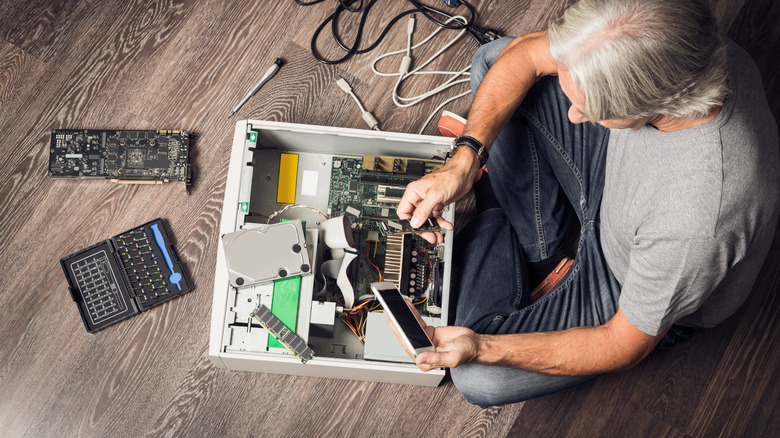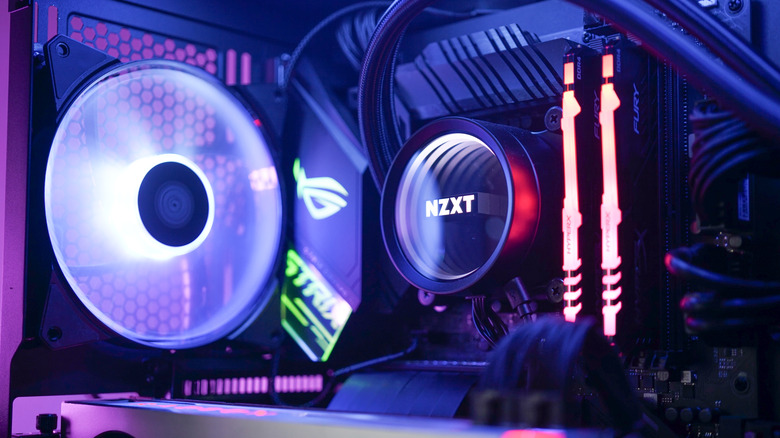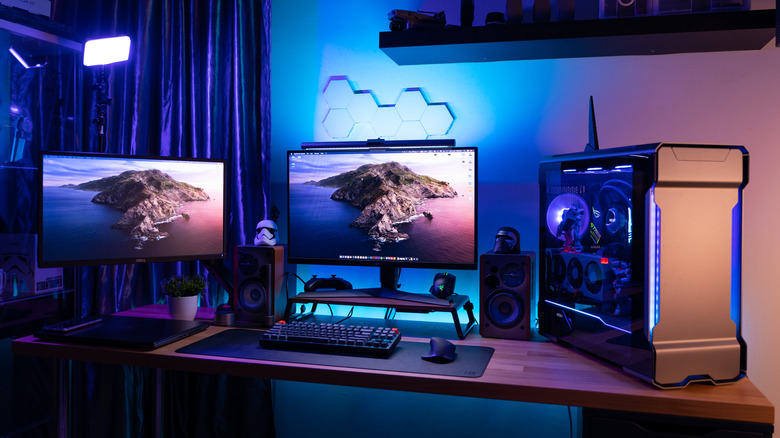Pre-Built Or DIY? The Pros And Cons Of Building Your Own PC
If you're looking to get into PC gaming, there are two popular ways to do it. You can opt for a pre-built PC that will essentially be like buying a console. You'll order it, have it delivered, and all you'll have to do is get everything plugged in and you're good to go. For a lot of people that's perfectly fine. For those of you who want to have a bit more agency over your build, doing it yourself is the route to take, but there are some things you need to know before you start.
Building a PC by buying the parts separately is often a cheaper option since components go on sale and you won't have to pay for the luxury of having it put together already. However, it comes with some downsides. One notable issue many people run into — especially first-time builders — is the PC not starting up when it's put together. There's a lot that goes into building a PC, and it can be an overwhelming experience.
Why you should build your own PC
If you want complete control over your CPU, GPU, RAM, case, etc. then you'll probably be better suited to building your own computer. This allows you to shop the sales and pick up pieces one at a time. Stores such as Micro Center often offer bundles that come with a motherboard and CPU, so you can keep an eye out for those as well. The tinkerers out there will also enjoy the process of actually snapping the pieces into place.
Websites like PC Part Picker will allow you to map out your entire build and get the best deals on each individual part, something a pre-built just can't offer. However, the best prices will typically come from a variety of different websites. This means you can end up waiting a lot longer for parts to arrive than you would with just buying an already-built PC. On the other hand, you should be saving a good chunk of change here, and you'll be able to potentially get some better parts for the price of a pre-built if you're fine with the wait. Saving money is nice, but you do want to make sure you don't cut too many corners.
Why you should buy a pre-built PC
If you're in the market for a pre-built PC, it practically means you want the opposite of everything that comes with building your own. Pre-builts won't run into the issue of not turning on when you buy it and you won't have to put anything together yourself. There won't be any extra hidden costs associated with a pre-built like having to purchase an operating system after you get everything put together. You also won't have to deal with the time it takes to put everything together with a pre-built when compared to doing it yourself.
Sites like NZXT allow you to customize a lot about your build, and while it can get very expensive in a hurry, you'll be able to rest easy knowing professionals are getting everything built for you. Pre-built PCs also mean you don't have to do much research on what processor fits in what motherboard socket, so it could be a really good path for people just getting into the PC gaming realm. It really makes for a nice middle ground between building your own and going with a pre-built.
Which option is best?
As is the case with many things in life, especially hobbies like PC gaming, it comes down to personal preference for what's better. Building your own PC offers you a high degree of versatility, but it also means a lot more can go wrong. In most cases, seeing somebody post their cool PC build on Reddit or other social media sites means they built it themselves. You're still able to get a nice-looking PC that's pre-built, but that'll usually cost you a bit more.
If you're just trying to get a PC for gaming, then pre-builts will be more than enough for you. You might find it more difficult to upgrade individual parts like your CPU and GPU that way whether it's because of a custom chassis or small case, but that's not a huge deal if you don't plan on upgrading any time soon. Not all parts fit into every case, so a lot of research is needed if you're planning on building yourself. Pre-builts will offer the same performance as a PC you built yourself if you use the same parts, so you have nothing to worry about there — provided you put everything together correctly, of course.



